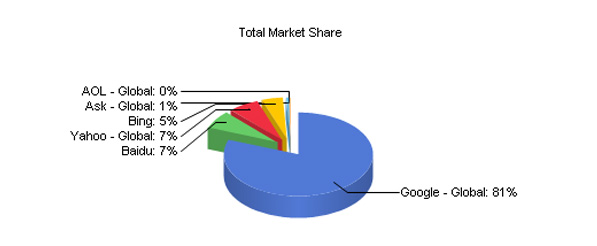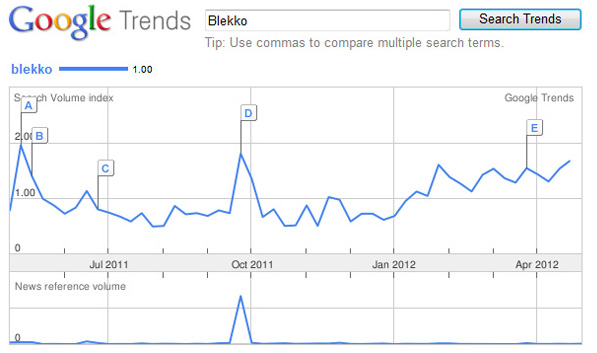Google’s Street View project is currently being investigated by the Federal Communications Commission (FCC). While Street Views are designed to provide panoramic views and wireless mapping of areas, there are allegations that the process “went beyond mapping wireless connections” and private information and communications have been intercepted and collected during the process. According to FCC documents, Google’s data gathering efforts have allowed people’s communications, specifically, a conversation about extra-marital affairs, were transmitted over their networks. Google was fined $25,000 last month by the FCC in regard to this investigation as an unnamed engineer who developed their Street View software invoked his right against self-incrimination declining to be interviewed, which the FCC claimed interfered with the probe.
Google also ran into trouble with the FTC over a cookie that allowed the search engine to override privacy protection provided by the Safari browser. However, this doesn’t suggest that people are turning away from the search engine. In fact, since last month (April 2012) Google’s Chrome browser has become the most used browser worldwide. It’s been said that Google will likely receive a fine from the FTC for the Safari privacy breach and could be in tune of 10 million dollars or more.
The Federal Trade Commission (FTC) is an independent agency of the United States government, established with the sole mission of protecting consumers from harmful or deceitful advertising practices, anti-competitive business tactics and enforces federal laws which protect consumer privacy and identity theft.
Google’s Android / Oracle Debacle
Privacy concerns clearly aren’t Google’s only issue. The search engine giant is in hot water over claims against the development of the Android platform. Oracle purchased Sun Microsystems in 2010. Oracle promptly filed a lawsuit over Google’s patents and copyright applications as Google began the development of the Android phone platform. Oracle claims that Google infringed on patents and copyrights owned by Sun Microsystems when they developed the pieces of Android that use Java. According to Oracle, Google illegally reproduced 37 individual APIs (application programming interface) used by Java. Java is a programming language originally developed by James Gosling at Sun Microsystems.
Deliberations will begin again on Monday, with both parties now stating that they would be willing to accept a partial verdict if it came down to it. Interestingly enough, the jury’s verdict form asks several questions. One of these provides a ‘fair use’ option for jurors who believe Google is not liable for their actions because those actions were taken under ‘fair use’. The jury could determine that any infringement is so insignificant that it isn’t enough to actually break the law. Google has claimed that its version of Java wasn’t a copy of Oracle’s technology but instead was its own engineering elements based on the same concepts, which fails to be protected by copyright.
Judge William Alsup, who is preceding over the case, gave his final instructions to the jury on Friday, saying that copyright protects the “expression of ideas” but not procedures, processes, systems, methods of operation, concepts nor principles or discoveries. “You must consider the qualitative and quantitative significance of the copied portions in relation to the work as a whole.”
Google’s Search Engine Market Share And Minuscule Competition
Google’s total global market share is at approximately 80 percent, despite the efforts of players like Microsoft’s Bing search engine. In fact, having captured less than 5 percent of total global searches and after spending over $100,000,000 on marketing, Bing still remains below global usage of Yahoo. As Bing now powers Yahoo search, it could be said that Microsoft could be cannibalizing its own user base.

The cellar dwellers are particularly interesting. Despite the fact that AltaVista is now little more than a dyeing Yahoo portal, it still receives 0.01 percent of the world’s searches. Lycos doesn’t really do much better, and it also received around 0.01 percent of all Internet searches. Excite still grabs approximately 0.03 percent.
Rising Competitors
Although they are not included in the market share report, Blekko.com, the spam free search engine, and DuckDuckGo.com, the privacy search engine, are two very interesting Google alternatives that user traffic and searches have increased on very rapidly. For DuckDuckGo.com, the reason is likely to point to its user friendly privacy considerations. DuckDuckGo.com claims that is doesn’t track you, like Google does, and with all the noise over Google’s privacy issues, many searchers are out there looking for real alternatives.

Blekko.com specifically claims “We do not attempt to gather all of the world’s information” and focuses on sites with little ads and user choice .

Either way, both of these alternative search engines have enjoyed significant growth since Google released its intent to update its privacy policy in January of this year. The post detailed that in a little over a month, which wound up being on March 1st, it would roll out its “unified privacy policy”. The goal, said Google, was to combine all of its privacy policies from its various web properties into one. Gmail, Google Docs, Google+, YouTube, etc., could then better target ads for you.
Privacy on search engines has long been a concern for groups like the Electronic Frontier Foundation, a non-profit digital rights advocacy organization. In March, users across the web lashed out against these changes claiming that Google is violating user privacy and using deceptive business practices. It’s pretty clear that Google’s legal team will be growing significantly over the next few years. You might say now would be a good time to ensure they do not forget about those users who helped make them the world’s most popular search engine, because lately it seems the ‘do no evil’ company is making a lot more enemies then friends.

About The Author: John Colascione is Chief Executive Officer of SEARCHEN NETWORKS®. He specializes in Website Monetization, is a Google AdWords Certified Professional, authored a how-to book called ”Mastering Your Website‘, and is a key player in several online businesses.

 *** Here Is A List Of Some Of The Best Domain Name Resources Available ***
*** Here Is A List Of Some Of The Best Domain Name Resources Available ***
Leave a Reply